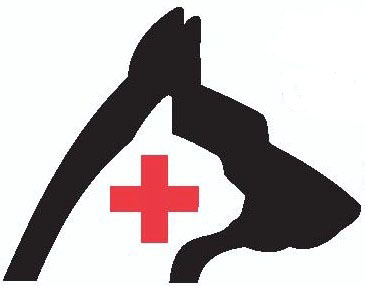Emergency surgery is unfortunately very common. It can be extremely stressful for owners who have often never had a pet have to have urgent surgery. We however, do surgery daily and are highly trained in surgery from wound care to urologic emergencies to trauma to intestinal foreign body obstructions to reproductive emergencies. Please let our staff care for your pet when they are in need.
Frequently Surgeries
We see wounds occur every day. Dogs may tussle and cause bite wounds, they run under trailers and step on glass, occasionally they fall and impale themselves. While horrible and scary, most can be repaired. Some wounds can be closed with sutures alone, some can be repaired with sutures, but require a drain and some need to be left open to be repaired at a later date, or by allowing it to scar in. There are 2 types of drains we typically use. The first is a Penrose drain which is a sterile latex tube and allows fluid from a wound to drain from the inside of the wound. The second is a Jackson-Pratt drain and this is a active suction drain. The suction drain requires more home care than the Penrose drain, but is very useful for large wounds.
The urogenital tract frequently has problems that may require surgery. Stones may obstruct the urethra of both male and female pets. If the stones are not able to be pushed back into the bladder using a catheter, sedation, and skill; then surgery to remove the stone may be needed. A urethrotomy is when an incision is made over a stone to remove the obstruction. A urethrostomy may be needed to reroute the opening of the urethra to make a new location for urination. This is mostly needed in male cats or dogs.
Bladder stones may need to be removed and this will require abdominal surgery. Often this surgery will be scheduled with your veterinarian, however, if they are unable to perform the surgery promptly due to day of the week or scheduling then it may be performed on emergency. Bladder stones can then be sent for analysis at the University of Minnesota urolithiosis laboratory. That analysis will help to determine what food to have your pet eat to prevent formation of stones.
Dogs seem to eat everything, but cats don’t want to be outdone either. Cloth things seem to be the most common causes of obstructive disease. Dogs will chew on socks and clothing, dish towels, bedding and cloth toys. An unusual thing to seem tasty are rocks. Dogs will eat rocks and they often are vomited up or pass through into the stool…unless they are too big to pass and get stuck. Rubber and plastic are commonly chewed upon and when not chewed into a small enough piece, they can also become stuck. Cats like to chew on string and dental floss, Christmas tree garland or Easter basket grass and for some reason have a taste for rubber mats as well.
To remove the non-digestible stuff that gets stuck in the intestines or stomach, a large incision into the abdomen will need to be made. The veterinarian will then palpate the stomach and intestines to search for the foreign material. When found an incision into the stomach and/or intestines will most likely be needed. The intestine may have significant damage and require to have a piece of intestines removed by performing a resection and anastomosis.
Some of the most stressful emergencies involve the lives of multiple animals at once. When a dog or cat has trouble with whelping the life of not only the mother is at risk, but also that of the babies. Requently we assist in the delivery of puppies and kittens. Getting them to breathe, nurse, inspect them for congenital disease and then ensure they are nursing on mom before going home.
If mom can not pass the babies naturally, then surgery is required to remove them. We can either perform the caesarian section and leave the uterus in place for future breeding, or removed to prevent additional pregnancy.
We want to avoid surgery if possible, however, when needed it is life-saving. Please trust our teams of veterinarians and veterinarian technicians to perform surgery on your pet if the need arises.
